
Workers collect damaged batteries in the southern Gaza Strip city of Khan Younis, on Dec. 8, 2021. Over 25,000 broken lead-acid batteries are stuck in the Gaza Strip and are posing a grave threat to the environment and the lives of Palestinians. (Photo by Rizek Abdeljawad/Xinhua)
by Sanaa Kamal
GAZA, Dec. 8 (Xinhua) -- Over 25,000 broken lead-acid batteries are stuck in the Gaza Strip and are posing a grave threat to the environment and the lives of Palestinians.
Unable to safely dispose of the discarded batteries, the Palestinians who live inside the crowded coastal enclave used to export them to Israel through the Kerem Shalom, the Israel-run only commercial crossing that connected Gaza to the Israeli territories.
In 2008, however, the Israeli authorities stopped the import and tightened their blockade on the enclave, after the Islamic Hamas movement took control over the area driving out the forces loyal to the Palestinian Authority.
Eid Hamada, a merchant for recycling the batteries, said that the number of discarded batteries is increasing daily, warning that the situation will only deteriorate because the residents of Gaza depend on alternative energy as they have to live with power outages for more than eight hours a day.
The accumulation of batteries in the strip is a "poisonous treasure" because it contains dangerous substances, especially acid materials and heavy metals, which can poison the soil, underground water, and eventually the people.
Mohammed Baraka, a merchant collecting discarded acid batteries from Khan Younis city in the south of Gaza, told Xinhua that he was forced to use about 300 square meters of his land to keep those batteries. And there was nothing he could do until Israel decides to import them once again.
The 45-year-old man said that he faces many problems with his neighbors who had repeatedly asked him to get rid of those batteries.
The ban on exporting batteries cost their only source of income. The price of a tonne of batteries exceeds 1,000 U.S. dollars, and the hampering of those exports causes heavy losses for traders.
In addition, they call on the international community to help traders in the coastal enclave get rid of the damaged batteries and pressure Israel to allow them to be exported again, for fear of their presence would affect underground water, animals and people.
In the besieged enclave, acid batteries are often disposed of in unsafe ways. In some cases, they are burned near residential homes inhabited by residents who complain about their danger and fear that their components of lead and mercury will seep into the soil and contaminate the water source.
In an attempt to get rid of the large quantities of batteries, some traders use homemade equipment to melt down the batteries and recycle the materials inside. But such process had soon stopped due to the emission of some toxic gases during work.
Sometimes children play with these batteries, break them or burn them and they get hurt in the process. Mohammed al-Amassi, a young boy, who tried to dismantle an acid battery, was burned by the acid fluid on his face and hands when the battery exploded.
"Unfortunately, these batteries have become a danger to the lives of our children, not only to the environment," Mohammed's father told Xinhua, calling on the government to get rid of them soon.
Mohammed Musleh, director of the Solid Waste Department at the Environmental Authority, told Xinhua that the leakage of heavy metal components in the batteries into underground water and soil would cause an environmental disaster. Enditem
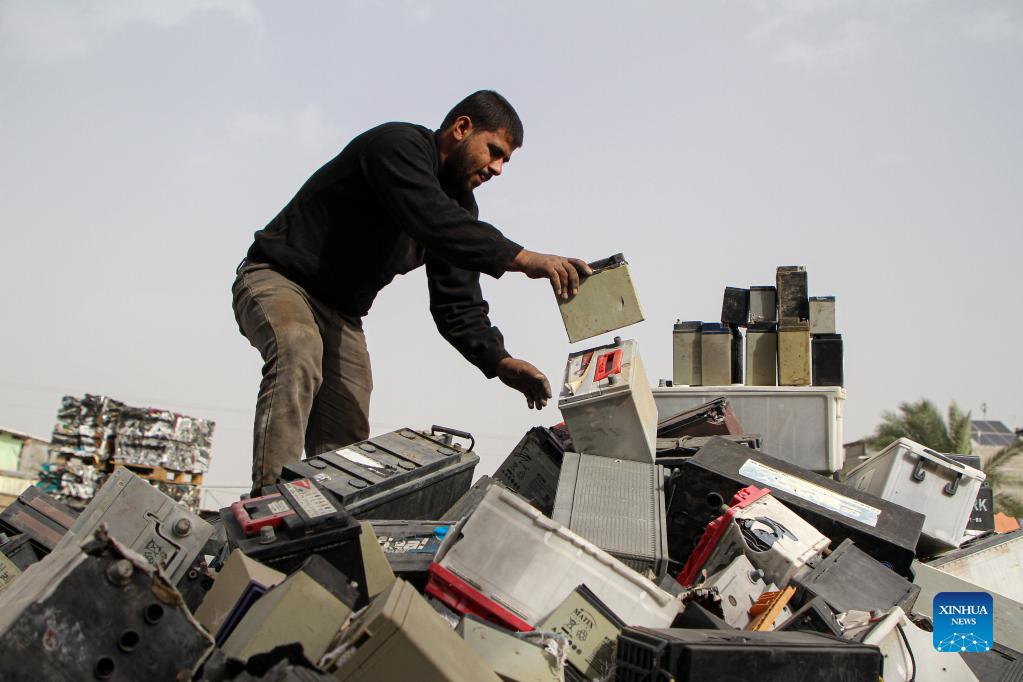
A worker collects damaged batteries in the southern Gaza Strip city of Khan Younis, on Dec. 8, 2021. Over 25,000 broken lead-acid batteries are stuck in the Gaza Strip and are posing a grave threat to the environment and the lives of Palestinians. (Photo by Rizek Abdeljawad/Xinhua)
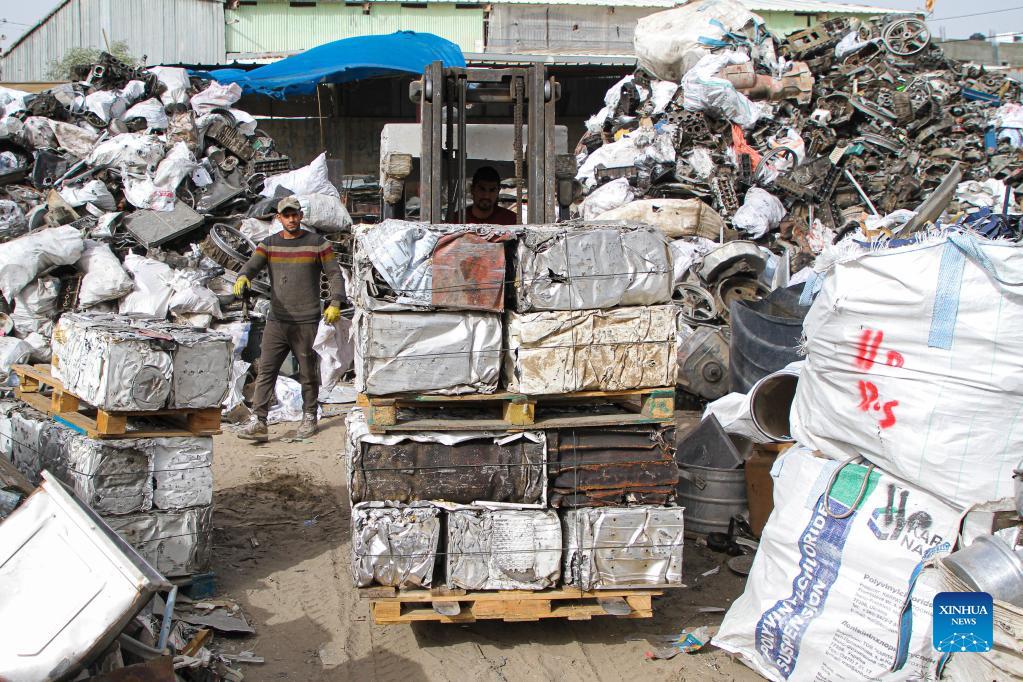
Workers collect damaged batteries in the southern Gaza Strip city of Khan Younis, on Dec. 8, 2021. Over 25,000 broken lead-acid batteries are stuck in the Gaza Strip and are posing a grave threat to the environment and the lives of Palestinians. (Photo by Rizek Abdeljawad/Xinhua)
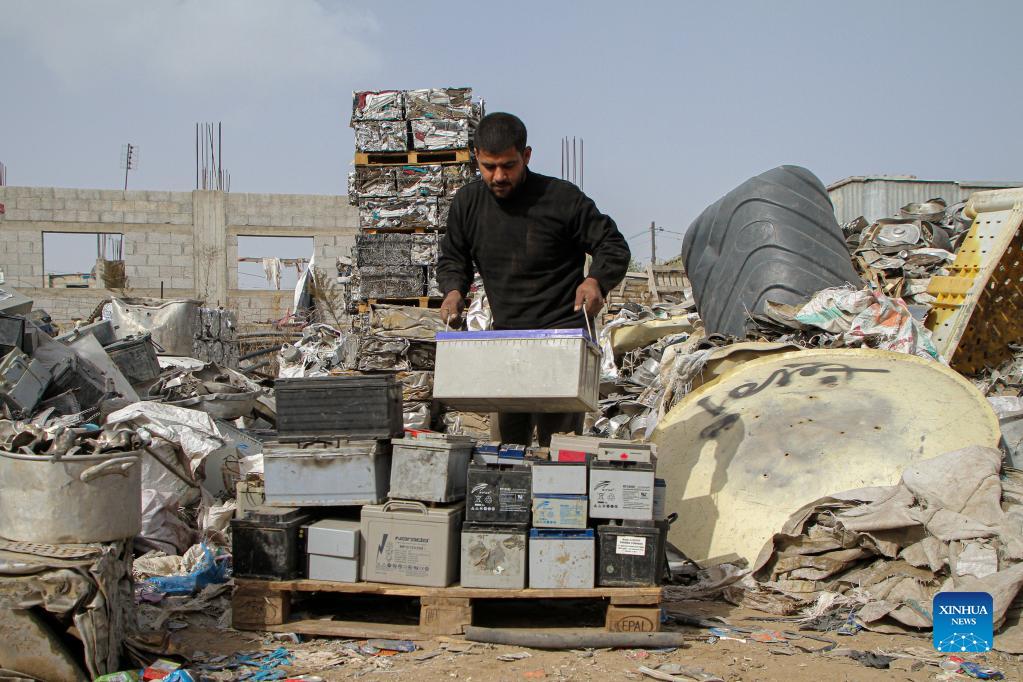
A worker collects damaged batteries in the southern Gaza Strip city of Khan Younis, on Dec. 8, 2021. Over 25,000 broken lead-acid batteries are stuck in the Gaza Strip and are posing a grave threat to the environment and the lives of Palestinians. (Photo by Rizek Abdeljawad/Xinhua)
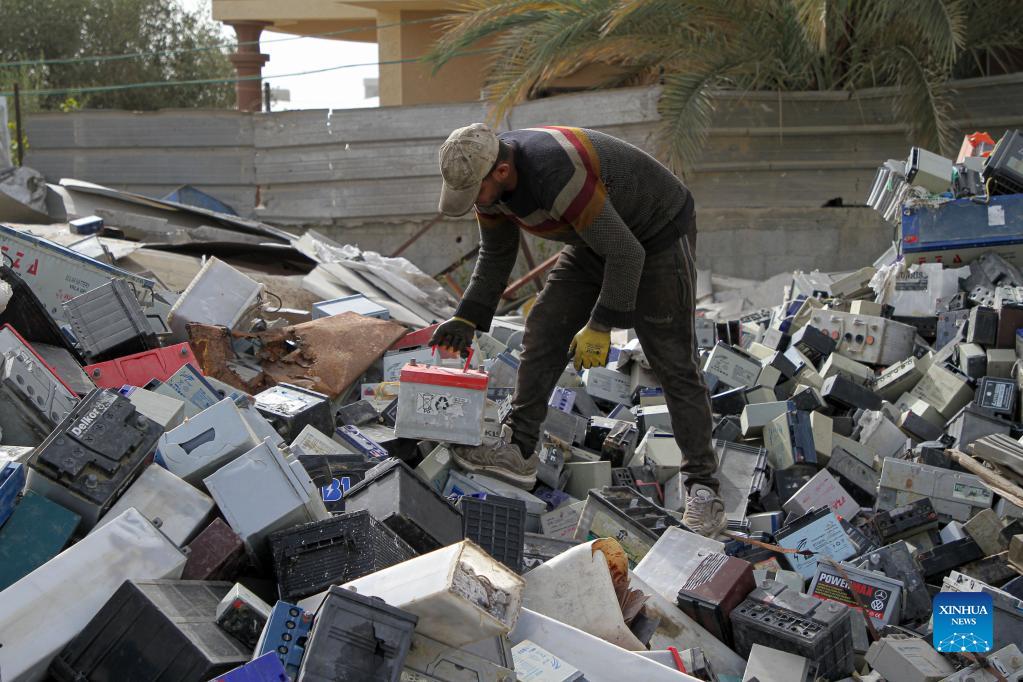
A worker collects damaged batteries in the southern Gaza Strip city of Khan Younis, on Dec. 8, 2021. Over 25,000 broken lead-acid batteries are stuck in the Gaza Strip and are posing a grave threat to the environment and the lives of Palestinians. (Photo by Rizek Abdeljawad/Xinhua)
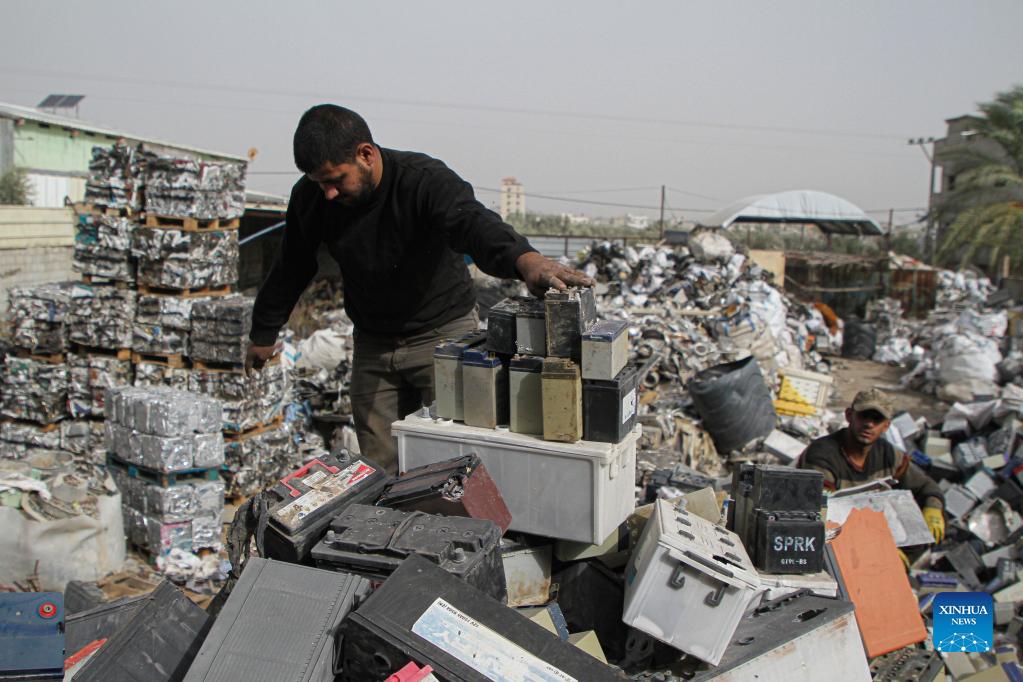
Workers collect damaged batteries in the southern Gaza Strip city of Khan Younis, on Dec. 8, 2021. Over 25,000 broken lead-acid batteries are stuck in the Gaza Strip and are posing a grave threat to the environment and the lives of Palestinians. (Photo by Rizek Abdeljawad/Xinhua)




